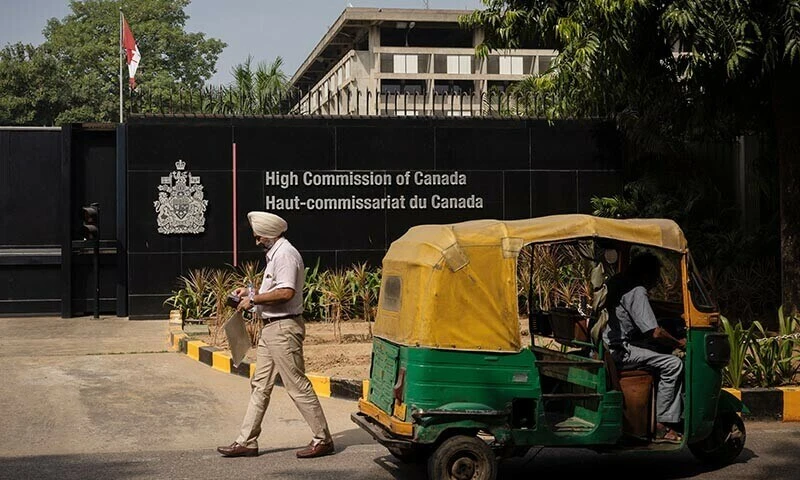Key Developments Amid Diplomatic Tensions
- India has directly blamed Canadian PM Justin Trudeau for the diplomatic tensions following the 2023 killing of Sikh separatist Hardeep Singh Nijjar.
- Canadian ambassador Stewart Wheeler ordered to leave India by Saturday.
- Four Indian nationals arrested in connection with Nijjar’s murder.
- Contrasting responses from India to similar allegations from the US and Canada have highlighted the ongoing diplomatic tensions.
Details of the Diplomatic Tensions
Following claims that India was involved in the murder of a Sikh separatist leader in Vancouver, the foreign ministry of India harshly criticized Canadian Prime Minister Justin Trudeau on Thursday, holding him personally accountable for the high level of diplomatic tension and the decline in bilateral relations.
Foreign ministry spokesman Randhir Jaiswal stated firmly,
“The responsibility for the damage that this cavalier behavior has caused to India-Canada relations lies with Prime Minister Trudeau alone.”
The statement came after Trudeau testified at a parliamentary inquiry, asserting that Canada had “clear indications that India had violated Canada’s sovereignty,” escalating the diplomatic tensions further.
The Murder Case Fueling Diplomatic Tensions
The June 2023 shooting death of Hardeep Singh Nijjar, a naturalised Canadian citizen, in the Vancouver parking lot of a Sikh temple is the main cause of the current diplomatic problems. Nijjar, who became a citizen of Canada in 2015 after immigrating there in 1997, was a well-known supporter of Khalistan, a hypothetical autonomous Sikh state in India.
Indian authorities had previously sought Nijjar on charges of terrorism and conspiracy to murder. However, the investigation has led to the arrest of four Indian nationals in connection with his death, intensifying the diplomatic tensions between the two nations.
Diplomatic Fallout: Heightened Diplomatic Tensions
The situation has triggered several retaliatory measures, underscoring the growing diplomatic tensions:
- Mutual expulsion of ambassadors.
- Temporary suspension of visa services for Canadians by India.
- Canada’s outgoing ambassador Wheeler claims to have “credible, irrefutable evidence” linking Indian government agents to the murder.
- India maintains it has received no evidence supporting Canada’s allegations, deepening the diplomatic tensions.
Contrasting Responses and Their Role in Diplomatic Tensions: US vs. Canada
The diplomatic tensions have highlighted India’s markedly different approaches to similar allegations from the United States and Canada. While maintaining a confrontational stance with Ottawa, New Delhi has shown a more cooperative attitude toward Washington’s concerns about a separate assassination plot on US soil.
The US State Department recently disclosed that they had received information from India on the expulsion of an intelligence agent who was allegedly responsible for planning a New York assassination attempt from government service. In this case, US authorities charged an Indian citizen with complicity in a foiled conspiracy against another Sikh separatist advocate. They also described the role of an unidentified Indian government employee who allegedly organised the operation and secured a $15,000 payment. The focus is still on the diplomatic tensions between Canada and India despite the divergent reactions.
Looking Ahead: Prolonged Diplomatic Tensions
The ongoing diplomatic tensions between India and Canada show no signs of immediate resolution, with both nations maintaining their positions. While Canada insists on the validity of its evidence, India’s categorical denial and aggressive diplomatic response suggest a prolonged period of strained relations and heightened diplomatic tensions between the two nations.
The contrasting handling of similar allegations by the US and Canada raises questions about the future of diplomatic relations and international cooperation in addressing cross-border security concerns, with diplomatic tensions set to continue dominating discussions.

